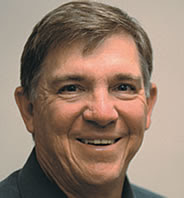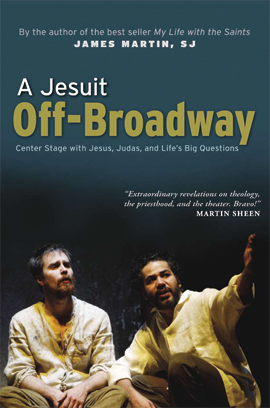by Edward C. Sellner
We would live more fulfilling lives -- and our 21st-Century society would be a better off -- if we were to adopt the values lived by monks and monastic communities through the ages.
That's the message Ed Sellner delivers as he shares the wise ways of holy people who lived the ascetic life in various ways since the times of the early church. He summarizes it so well with his perceptive concept that every person today needs "to live simply, to pray often, and to choose well," but there's so much more that adds practical, concrete approaches that anyone can take up -- and not have to move to a monastery to do so.
Sellner, who teaches at the College of St. Catherine in St. Paul, has really done yeoman's work here in this HiddenSpring publication by Paulist Press. The 272-page book -- minus notes -- takes readers on a journey through the lives of a handful of monastic "celebrities," if you will.
Chapters include the likes of Athanasius of Alexandria, Antony of Egypt, Martin of Tours, Hilary of Poitiers, Augustine and Monica, Brigit of Kildare, Gregory the Great, Benedict and Scholastica, and Bernard of Clairvaux, among others. Sellner shows how the monastic tradition grew and developed from the Third Century in the Middle East to Europe in the Middle Ages as monastics learned from their elders and added charisms that were needed at their time in history.
The stories of these saintly folks aren't always compelling reading, but there are enough passages of interesting details in their lives that will keep a reader moving through the pages. The gift of this work, though, is that Sellner consistently brings the reader back to the values these ancient folks practiced and why those values are important for those of us currently on the planet.
Which holy figures teach what values?
- Athanasius: Sharing stories, "and that one does not have to be a monk in a monastery to live out monastic values today."
- Antony: Silence and solitude, and how they can foster discernment, the ability to begin to see differences between right and wrong.
- Hilary of Poitiers and Martin of Tours: faith, and its participative and communal dimension.
- Augustine and Monica: friendship.
- Jerome, Paula and Eustochium: the need for qualified spiritual mentors.
- John Cassian and Germanus: the value of disclosing our secrets, plus dedication to inner work.
- Brigit and other Irish monastics: compassion, and including lay people in monastic communities and women in decision-making and leadership positions.
- Gregory the Great: contemplation.
- Benedict and Scholastica: stability and love.
- Bernard of Clairvaux: learning to read the "book of experience," the book of our lives, as well as the book of our hearts.
To both develop an interior life and to make a difference in the world, according to Sellner. To do so one needs to identify the values the monastics lived and incorporate them into their own deeper selves.
"These are not only monastic values," he writes, "but values of the soul -- and they apply to everyone, regardless of gender, occupation, material status, or place of residence."
Sellner puts it well in his conclusion:
"What our study of monasticism reveals is that to affirm and nurture the growth of the true inner self a 'new monk' must develop an asceticism of loving. This form of asceticism, so much need today, presumes that to love well a person needs discipline, the setting of limits, the investment of time and energy in relationships and work that reflect at least some of the values discussed here.
"Such an asceticism of living involves a commitment to growth in self-knowledge, self-discipline, and self-love, all based upon the profound conviction, so difficult at times to believe, that God created us for a purpose, that God loved us first. To discover this and make this a daily, lived experience, one must learn to listen to the heartbeat of God." -- bz


